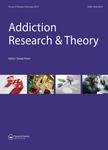版权所有:内蒙古大学图书馆 技术提供:维普资讯• 智图
内蒙古自治区呼和浩特市赛罕区大学西街235号 邮编: 010021

作者机构:Harvard Med Sch MGH Inst Technol Assessment Boston MA 02115 USA Harvard TH Chan Sch Publ Hlth Dept Epidemiol Boston MA USA
出 版 物:《ADDICTION RESEARCH & THEORY》 (Addict. Res. Theory)
年 卷 期:2025年第33卷第3期
页 面:231-242页
核心收录:
学科分类:0303[法学-社会学] 1007[医学-药学(可授医学、理学学位)] 1004[医学-公共卫生与预防医学(可授医学、理学学位)] 10[医学]
基 金:Food and Drug Administration
主 题:Medications for opioid use disorder community-based system dynamics opioid use disorder group model building opioid epidemic causal loop diagram
摘 要:BackgroundAlthough medications for opioid use disorder (MOUD) are effective for treating opioid use disorder (OUD), persistent barriers still prevent patients from accessing this life-saving care. Policies to increase MOUD access have produced suboptimal results. This study presents a qualitative system dynamics model that elucidates the complexities of accessing and staying in MOUD *** utilized a community-based system dynamics approach to modeling the MOUD treatment system. We engaged a cohort of system experts/stakeholders, including individuals who had received MOUD, treatment providers, and policymakers, in interviews and group model building to develop and refine a simulation model. We then created a qualitative causal loop diagram based on insights gained while developing the simulation model and a review of interview *** causal loop diagram captures four key factors affecting treatment initiation, retention, and leaving: (1) fraught interactions between patients and healthcare providers;(2) stigma-driven regulation of MOUD creating a culture of fear and defensive medicine;(3) a punitive culture in clinics and opioid treatment programs offering MOUD;and (4) the internalization of the abstinence narrative contributing to premature termination of *** analysis highlights how interdependent and non-linear feedback processes diminish or counteract the effectiveness and sustainability of MOUD policy interventions. Due to system memory and cultural resistance to change, even rolling back reactionary policies may do little to curb established behavioral patterns. In addition, conflicting and competing strategies among various actors within the system contribute to goal misalignment and a lack of standardization of care.